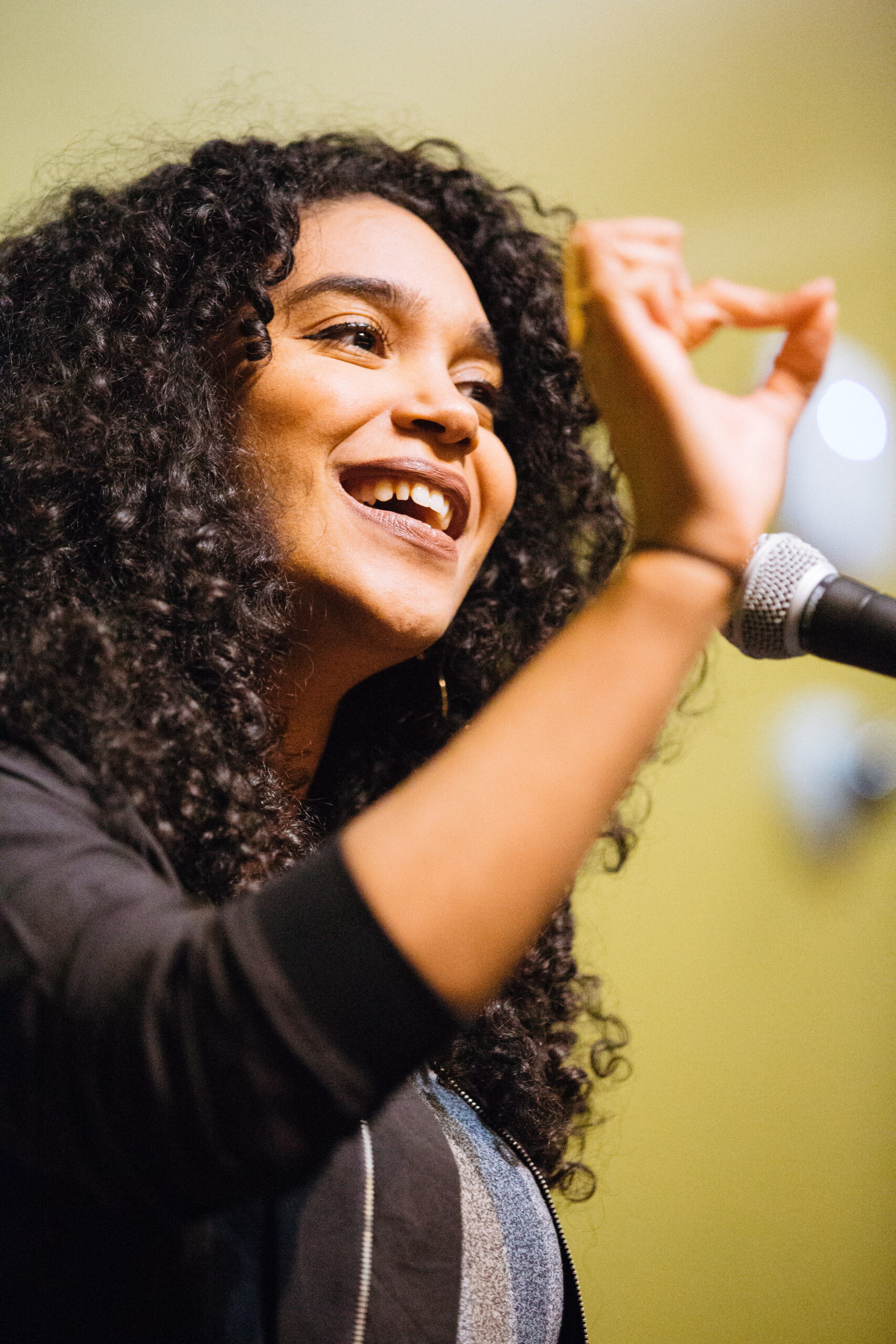Acevedo performs poetry with power
March 2, 2018
 PJ Seelert
PJ SeelertRats, Cardi B and Catholic iconography each have a home in Elizabeth Acevedo’s award-winning slam poetry. Sponsored by the Center for Multicultural Life, Acevedo’s performance on Tuesday night at Jack Magee’s Pub probed into issues of politics, race, culture and womanhood.
Acevedo grew up in a Dominican household in New York City. She attributes her early interests in poetry and storytelling to her parents. After hearing their stories, she became fascinated with fantasy and history.
“I think that is a little bit of what it means to look toward singularity as a poet, what is it that you’re bringing, rhythm and cadence and language uses, the images you come up with, the point of view you have that no one else is bringing, that alchemy and that particular formula to the page,” she added.
Acevedo brings together multiple worlds and cultures in her work. Her poetry is idiosyncratic, combining emotions, narratives and diverse vernaculars. Drawing on experiences of alienation and invalidation, she performed “For the Professor Who Told Me Rats Aren’t Noble Enough Creatures for a Poem.”
“Because you may be inelegant, simple, a mammal bottom-feeder, always fucking famished, little ugly thing that feasts on what crumbs fall from the corner of our mouths, but you live uncuddled, uncoddled, can’t be bought at Petco and fed to fat snakes because you’re not the maze-rat of labs,” she said.
Acevedo’s rat ode, like many of her stories, is what she calls an imaginary clapback, an assertion of identity and relevancy, the idea that for every story there is an audience. She confronts systems and institutions with authenticity and honesty.
“Mostly it serves a reminder for any of us who have ever been told our story is too small, or too ugly, or too different for high art, that we are all of us deserving of poetry, ” said Acevedo.
A first-generation American and daughter of immigrants, Acevedo charges her poetry with powerful political and social statements. Her poem “Hair” unravels the internalized prejudice that has long plagued her family and Afro-Latino communities.
“They say Dominicans can do the best hair. Wash, set, flatten the spring in any lock,” she performed. “But what they mean is we are the best at swallowing amnesia, in a cup of morir soñando: die dreaming. Because we rather do that than live in this reality between orange juice and milk, between reflections of the sun and whiteness…”
Some of Acevedo’s most powerful images are deeply rooted in her Catholicism. She strives to use religious iconography to subvert established ideals. Acevedo pays homage to Cardi B by writing a poem in which the rapper is Eve, challenging the inherent misogyny of the familiar tale.
“I’ve rarely seen someone who is so unapologetic about what she says and how she walks through the world and owns it, and owns her vulnerability and owns her mistakes,” Acevedo praised the singer. “It’s so beautiful to watch the process of humanity without someone trying to continuously pretend.”
Her concluding poem, written in response to the recent presidential election, garnered torrential applause. Again referencing Catholic iconography, she makes a forceful statement rooted in evocative imagery:
“A man has not been elected president, a symbol has. A piece of fiction. A myth. And I know a myth about a man, it’s always a man, who heard of a disaster, who builds a wooden structure and put the creatures in it … But an ark is not a country, and we were never the sheep, we were always the flood. The black, the brown, the undocumented, the Muslim, the queer and trans and woman, and we are rising, and we rising, and we are rising. Don’t you see. We will cover this whole damn country, before we ever recede.”
Acevedo is the author of the collection of poems, “Beastgirl & Other Origin Myths.” Her first novel, “The Poet X” is scheduled for release on March 6 by HarperCollins.

Comments
Before submitting a comment, please review our comment policy. Some key points from the policy: